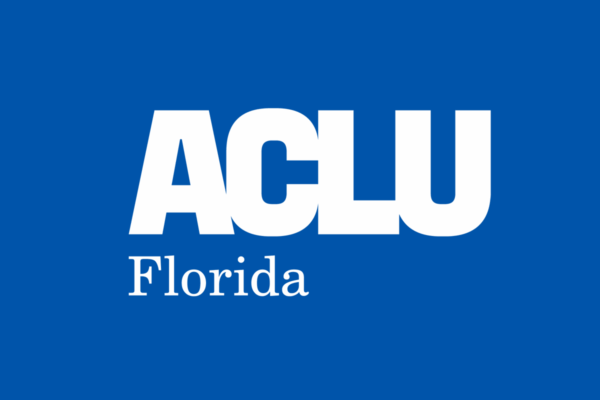The settlement will provide access to records regarding individuals’ release dates from Florida’s prisons
Tallahassee, FL — The ACLU of Florida and the Florida Department of Corrections (FDOC) reached a settlement in a lawsuit that demanded FDOC release pertinent data used to generate release dates for the roughly 80,000 people imprisoned in its facilities.
In October 2019, the ACLU of Florida submitted a public records request to FDOC asking that FDOC provide it with the data necessary to calculate each currently detained person’s tentative release date. The ACLU of Florida wanted this information to use it to pursue meaningful sentencing reform, to gauge how potential legislative proposals could reduce the prison population and racial disparities in Florida’s prisons, and to make sure FDOC accurately calculates individuals’ release dates. FDOC refused to release the requested information, prompting the ACLU of Florida to file a lawsuit. In response to this lawsuit, the agency provided partial information in January 2020. After FDOC provided the incomplete information, the ACLU of Florida requested the mathematical formula that FDOC uses to calculate individuals’ release dates. FDOC refused to provide the formula, prompting the ACLU of Florida to file its second lawsuit in May 2020. For a year and a half, FDOC remained adamant it had provided all needed data.
A state court found in October 2021 that FDOC had provided incomplete data in response to the ACLU of Florida’s records requests. The court granted the ACLU of Florida’s motion for partial summary judgment and the parties were able to settle the case.
The settlement requires FDOC to provide the organization with the full data to properly calculate people’s release dates from FDOC’s custody. With this information, the ACLU of Florida aims to provide meaningful proposed amendments to Florida’s statute cap on rehabilitative credits and predict the effect that such a change will have on both incarcerated people of color and the overall prison population.
Benjamin Stevenson, staff attorney of the ACLU of Florida, stated the following in response to the settlement:
“After nearly two years of litigation, the FDOC has met the calls for transparency by providing full data that will aid the movement to reform the state’s broken criminal justice system. With this settlement, we now will finally have the data necessary to calculate the tentative release dates. With the data, we will be able to propose meaningful amendments to Florida law to increase a person’s ability to earn rehabilitative credits allowing individuals to earn additional time off of their sentence for good behavior and participation in rehabilitative programming.
“We deserve transparency from our government. Granting this public access to FDOC records will allow for meaningful changes in our failed criminal justice system. Easing the burdens of our overcrowded prisons would not only save money but would incentivize good behavior, make families whole again, make prisons safer for both inmates and staff, and reduce racial disparities that are otherwise present throughout our criminal legal system. This settlement move towards public accountability brings us closer to bringing better justice for Floridians.”
Stay Informed
Sign up to be the first to hear about how to take action.
By completing this form, I agree to receive occasional emails per the terms of the ACLU’s privacy statement.
By completing this form, I agree to receive occasional emails per the terms of the ACLU’s privacy statement.

